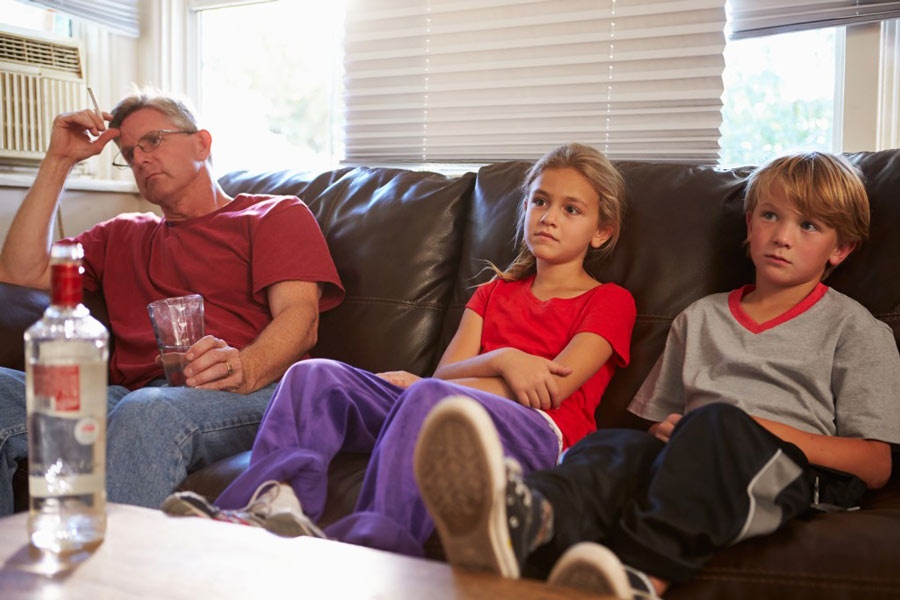Regardless of the reasons behind getting married, they don’t always succeed. Very often, children end up being involved. As hard as divorce is on an adult, it can tear a child’s world apart. During the marriage, during a divorce, and following the divorce, if a child’s other parent abuses drugs or alcohol, the stakes are automatically raised. The court will vigorously investigate that allegation to ensure a child is never put in a harmful situation.
The Laws Surrounding Child Custody and Substance Abuse
If you claim one parent has a drug or alcohol abuse problem, the courts will refer to the physical and mental health clauses within the Family Law Statutes. These clauses consider the physical and mental capacity of the parent and determine whether or not they would pose a risk to the child’s wellbeing if they were granted custody or even visitation.
In the State of New Jersey, there is a policy in place referred to as “best interest of the child”. It governs child custody cases. First and foremost is a child’s or children’s well-being. Though the “best interest of the child” policy isn’t precisely defined, it refers to the following: When deciding what type of orders, actions, and services will serve a child best – and, to take care of the child, who is best suited – exactly what the courts will take into consideration for their deliberation.
How Does the Court Determine Child Custody Rights?
That last definition of what is taken into consideration by the courts was a mouthful. To make it easier to understand, look at it this way: Regarding child custody, before making a final decision, many factors are taken into consideration by judges. Some of the things a judge may consider are the child’s:
- Welfare
- Protection
- Safety
- Health
- Education
Family integrity, in New Jersey, is one of the biggest guiding principles. Courts do all they can to avoid removing a child from their home. You can and will most likely lose your custodial rights, however, if you are drinking or doing drugs around your kids.
What Should You Do if Your Ex is Endangering Your Child?
If you share custody of your child after a divorce or if you allow them to have occasional visitations with your ex, but you think they may be drinking/doing drugs around the child, you have a valid concern. They are endangering your child’s welfare. If you feel your child is being put at risk because your co-parent is engaging in inappropriate behavior or has a substance abuse problem, immediately contact your attorney. They play a crucial role in guiding you through the legal steps required to protect your child/children and to advise you on the best course of action.
An investigation must be done – during and after which the substance abuser in question may either lose visitation rights completely or be allowed only visitation that is supervised. Supervision of visits will likely continue if the party is deemed incapable of properly caring for the child or engaging in reckless behavior around them. Until they can adequately demonstrate the ability to care for their children and have completed a recovery program, supervised visits will continue. However, in the worst-case scenario, visits could be discontinued altogether.
Providing Proof of a Co-Parent’s Drug or Alcohol Abuse Problem
If you’re convinced that the co-parent of your child is using alcohol or drugs in front of them or drug/alcohol use is simply making it impossible for them to properly care for the child and be a good influence, you’ll need proof. In fact, you will need to back up your allegations via the assistance of an attorney. What constitutes proof in this case?
- Reputable testimony from a witness that, around the child, your former spouse is using substances.
- Ordered a toxicology panel via blood or hair.
- A recorded history of alcohol use or drug use.
- A court-ordered drug test proving a substance is being used/abused.
- Texts, social media posts, photographs, videos, and other direct evidence of the person in question using the substance in front of the child.
It is important to realize that even with the right amount of proof, a parent could still be awarded visitation rights even if they have a substance abuse problem. They may be awarded supervised or limited visitation.
In the event that the co-parent is a recovering alcoholic or drug abuser, but has proof that they have successfully completed rehabilitation and are being proactive about staying drug or alcohol-free, they could be awarded custody.
Romanowski Law Offices Can Help with Child Custody Matters
Drug addicts and alcoholics are master manipulators. They know how to hide their addictions and abuse problems, and they know how to dodge medical tests. An attorney can help you gather the evidence you need to prove your claims and get the custody that is best for your child. Don’t worry; contact the attorneys at Romanowski Law Offices today. We can discuss the circumstances of your case and we may be able to help you prove that the co-parent is abusing drug or alcohol.
The representatives of Romanowski Law Offices are compassionate, supportive, and responsive. We understand that, as hard as divorce already is, when children enter the picture, the stakes are raised even higher. With continuous education, experience, dedication, and empathy, we offer expert assistance and representation in the following areas:
- Child Support/Alimony
- Child Custody
- Alternative Dispute Resolution
- Domestic Violence
- Family Law
- Separation, Annulment, Civil Union Dissolution, Divorce
Contact Us to discover our office locations and/or submit your comments and questions via our convenient online form.

